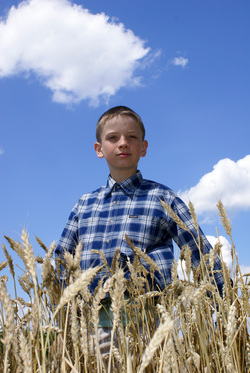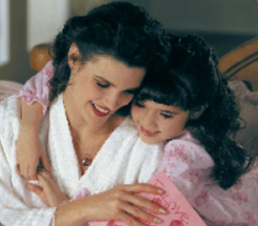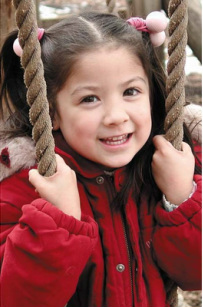 I had lost all sense of time that hot July morning as I leaned on my hoe handle and let my imagination indulge me in projects more exciting than hoeing corn. Then suddenly I saw Grandpa-until that moment my role model of kindness and compassion-coming through the field, walking rapidly between the rows and swinging a long, keen maple switch. Now I’ve done it, I thought as I realized I had crossed the limits of his forbearance. I began to hoe the young corn as fast as my 11-year-old arms would move, not daring to look up as I heard his footsteps on the plowed ground and the corn brushing against his legs. Stunned by the reality of what was about to happen, I remembered the time he told me, “Jesus cried sometimes, but He could be tough when He needed to be.” Grandpa was going to be tough with me-for the first time in my life. That summer I was 11, and the Great Depression’s hard times still lingered in Tennessee. Most mountain people depended mainly on the food and livestock they raised on their small farms. On that morning, I was in the roastin’ ears patch to hoe so that Grandpa could finish up his plowing. “Don’t let him piddle along,” Dad had told Grandpa. “Dust his britches if he needs that, but don’t let him jest play along and lean on that hoe handle. He’s had some lazy spells lately.” Dad was afraid Grandpa would be too lenient with me, for I had heard him tell Ma, “Pa is jest too softhearted for his own good sometimes.” One of the great moments of my young life was that day the past summer when I overheard Grandpa tell a visiting preacher that I might turn out to be his best grandchild because I “hankered after things of the mind.” But “things of the mind” had possessed me that morning. As I leaned on my hoe handle, slapping now and then at the sweat bees and corn beetles, my thoughts were at the creek where I had been planning to build a dam across the narrow crossing. I would dam up the creek with mud, leaves, and rocks, and then make boats from bucket lids and old cigar boxes and have a navy on the high seas. Absorbed in my engineering project, I did not even notice that Grandpa was no longer calling out “Gee” and “Haw” to the mule in the nearby field. Then I saw him coming toward me, walking swiftly between two rows of corn with that maple switch in his hand, and I began to hoe. “Wait a minute, son,” he said softly. “Somethin’ I need to take care of. How’s yer hoe doin’ this morning’?” “It’s doin’ fine, sir.” “I don’t think it is, son. Let me have a look at it.” I handed him the short-handled hoe he had fixed especially for me, and he began to talk to it, holding it at arm’s length. “Hoe, I sent you here this mornin’ with my grandson to hoe this corn. You know this corn needs to be hoed. You know we’ll need roastin’ ears this fall-he’ll need some to take to school fer his lunch. But you wouldn’t hoe. Now, I’m going to have to tune you up a bit so you’ll help my grandson.” Then he whipped the hoe handle until the maple switch was broken and limp. As he tossed away the remnant of the switch, he handed the hoe back to me. “I believe it’ll do a better job this time, son.” “It’ll do much better, sir,” I assured him as I began to chop at the weeds with energy I had never realized. “I think it’ll do fine.” Grandpa turned and walked away. After a few yards he stopped and turned, tears in his big blue-green eyes. “Told yer ma you’d eat with us today, so don’t be late. Yer grandma’s cookin’ us a big peach cobbler, and she’ll be aggravated if we ain’t at that table on time.” - By Ernest Shubird, courtesy of Guideposts ****** The Best Way is the Love Way This is what God’s been patiently and lovingly trying to teach us all along: to do the right things with the right motivation, out of love. And using God’s example, we also should try to persuade others to do the right thing out of love. Certainly God has to have a lot of patience and love with us, so we should have patience and love with others! -David Brandt Berg
0 Comments
 An elementary teacher named Mrs. Thompson stood in front of her fifth grade class on the very first day of school and told the children a lie. Like most teachers, she looked at her students and said that she loved them all the same. But that was impossible, because there in the front row, slumped in his seat, was a little boy named Teddy Stoddard. Mrs. Thompson had watched Teddy the year before and noticed that he didn’t play well with the other children, that his clothes were messy and that he constantly needed a bath. And Teddy could be unpleasant. It got to the point where Mrs. Thompson would actually take delight in marking his papers with a broad red pen, making bold X’s and then putting a big “F” at the top. At the school where Mrs. Thompson taught, she was required to review each child’s past records and she put Teddy’s off until last. However, when she reviewed his file, she was in for a surprise. Teddy’s first grade teacher wrote, “Teddy is a bright child with a ready laugh. He does his work neatly and has good manners. He is a joy to be around.” His second grade teacher wrote, “Teddy is an excellent student, well liked by his classmates, but he is troubled because his mother has a terminal illness. Life at home must be a struggle.” His third grade teacher wrote, “His mother’s death had been hard on him. He tries to do his best, but his father doesn’t show much interest and his home life will soon affect him if some steps aren’t taken.” Teddy’s fourth grade teacher wrote, “Teddy is withdrawn and doesn’t show much interest in school. He doesn’t have many friends and he sometimes sleeps in class.” By now, Mrs. Thompson realized the problem and she was ashamed of herself. She felt even worse when her students brought her Christmas presents, wrapped in beautiful ribbons and bright paper, except for Teddy’s. His present was clumsily wrapped in the heavy, brown paper that he got from a grocery bag. Mrs. Thompson took pains to open it in the middle of the other presents. Some of the children started to laugh when she found a rhinestone bracelet with some of the stones missing, and a bottle that was one quarter full of perfume. But she stifled the children’s laughter when she exclaimed how pretty the bracelet was, putting it on, and dabbing some of the perfume on her wrist. Teddy Stoddard stayed after school that day just long enough to say, “Mrs. Thompson, today you smelled just like my mom used to." After the children left she cried for at least an hour. On that very day, she quit teaching reading, writing, and arithmetic. Instead, she began to teach children. Mrs. Thompson paid particular attention to Teddy. As she worked with him, his mind seemed to come alive. The more she encouraged him, the faster he responded. By the end of the year, Teddy had become one of the smartest children in the class and, despite her lie that she would love all the children the same, Teddy became one of her “teacher’s pets.” A year later, she found a note under her door from Teddy, telling her that she was the best teacher he ever had in his whole life. Six years went by before she got another note from Teddy. He then wrote that he had finished high school, third in his class, and she was still the best teacher he ever had in his whole life. Four years after that, she got another letter, saying that while things had been tough at times, he’d stayed in school, had stuck with it, and would soon graduate from college with the highest of honors. He assured Mrs. Thompson that she was still the best and favorite teacher he ever had in his whole life. Then four more years passed and yet another letter came. This time he explained that after he got his bachelor’s degree, he decided to go a little further. The letter explained that she was still the best and favorite teacher he ever had. But now his name was a little longer—the letter was signed, Theodore F. Stoddard, M.D. The story doesn’t end there. You see, there was yet another letter that spring. Teddy said he’d met this girl and was going to be married. He explained that his father had died a couple of years ago and he was wondering if Mrs. Thompson might agree to sit in the place at the wedding that was usually reserved for the mother of the groom. Of course, Mrs. Thompson did. And guess what? She wore that bracelet, the one with several rhinestones missing. And she made sure she was wearing the perfume that Teddy remembered his mother wearing on their last Christmas together. They hugged each other, and Dr. Stoddard whispered in Mrs. Thompson’s ear, "Thank you, Mrs. Thompson, for believing in me. Thank you so much for making me feel important and showing me that I could make a difference.” Mrs. Thompson, with tears in her eyes, whispered back. She said, "Teddy, you have it all wrong. You were the one who taught me that I could make a difference. I didn’t know how to teach until I met you.” - Author Unknown Go with me to a crowded courtroom in a city in the northeastern U.S. A boy about sixteen years of age, who has been accused of stealing an automobile, stands before the judge, awaiting sentence. In a chair nearby, a mother sobs hysterically. An attorney has just testified that the young offender has been a constant nuisance to the community. Previously the chief of police had told how the boy had been arrested on numerous occasions for stealing fruit, breaking windows, and committing other acts of vandalism.
Now the stern, coldeyed judge, glaring over the rims of his spectacles, launches into a bitter tirade against the youth, reminding him of the dire consequences which will result from his lawless acts. Every word from the thinlipped judge is like the crack of a whip, as he mercilessly berates the defendant for his irresponsible conduct. He seems to be searching his vocabulary for the cruelest words he can find with which to humiliate the lad who stands before him. But the boy does not cower before this bitter tonguelashing. His attitude is one of reckless defiance. Not once does he lower his eyes from the face of the judge. With compressed lips and flashing eyes, he glares at his persecutor. When the judge pauses for a moment to let his words take effect, the boy looks him straight in the eye, and from between clenched teeth come the words, “I’m not afraid of you.” An angry flush spreads over the face of the judge as he leans over his desk and snaps out, “I think about the only language you can understand is a six-month sentence in reform school.” “Go ahead and send me to the reform school,” the boy snarls. “See if I care.” The feeling in the courtroom is tense. Spectators look at one another and shake their heads. “That kid is hopeless!” an officer has just remarked. All of the invectives hurled at the boy have served only to stir up a deeper feeling of hatred and resentment in him. The scene is much like that of a lion trainer jabbing at a caged beast with a pointed stick, with every thrust goading the victim to renewed fury. At this point the judge spies among the spectators a young man from a nearby town, the superintendent of The Golden Rule Farm for problem boys. “Mr. Weston,” he says, in a tone of weary resignation, “what do you think of this boy?” The gentleman in question steps forward. He has an air of assurance that immediately commands respect, and a kindly look in his eyes that makes you feel that here is a man who really understands boys. “Judge,” he says quietly, “that boy isn’t really tough. Underneath that bluff of his he is completely and thoroughly frightened and deeply hurt. My belief is that he has never had a chance. Life has been bewildering to him. He has never known a father’s love. He has never had the hand of a friend to guide him. I’d like to see him given a chance to show what he’s really worth.” For a moment the courtroom is quiet. Then the silence is suddenly broken by a stifled sob, not from the mother, but from the boy! The kind, sympathetic words of Mr. Weston have broken him completely. There he stands with shoulders drooped and head bowed, as tears slowly trickle down his cheeks. One kind word has reached the boy’s heart, whereas a half-hour of denunciation had served only to make him the more resentful. The judge coughs to hide his embarrassment and nervously adjusts his spectacles. Then the chief of police, who had testified against the lad, slips from the room, followed by the attorney. After a moment of deliberation, the judge turns to Mr. Weston and says, “If you think you can do anything with the boy, I’ll suspend sentence and turn him over to you.” The conclusion of the story is that the lad was given into Mr. Weston’s charge, and from that time forth he caused no more trouble. The friendly gesture of the man who had come to his defense that day in the courtroom had put his feet on a new path and helped to bring out those finer qualities of character which no one previously thought even existed. —Adapted from Clarence Westphall  One of the most important things you can give your children is love—an attitude of love, an assurance of your love. Your children need to know that you love them. They need to feel and see your love expressed towards them. They see it expressed in the care that you give them in providing housing and food, but they often take these things for granted. They don’t see the sacrifices, or understand how you have structured your life in order to care for their physical needs. Therefore, they need to see spiritual love, emotional love, personal love. This is what will create a bond of love and trust. Create opportunities for closeness Love longs for expression. It longs for an opportunity. When you have this attitude of deeper love in your heart towards your children, they will see it, and opportunities for closeness will present themselves. Your children will say, “Dad, would you play this game with me?” “Mom, let me show you what I did at school today.” “Mom, what do you think I should wear to this party?” “Dad, can you help me fix this?” Look for opportunities. They may not be as you anticipate. You may have to make changes in your schedule. As your kids see and understand that you wish to be more a part of their lives, they will be happy that you are there for them, as a friend wanting to help. It may begin as simply as watching TV with them, but don’t let it stop there. Provide opportunities for discussion. For example, go places where they like to go, and then talk with them about it. Find out what they liked about it and what their impression was. Their views may be different from your own, but don’t try to push yours on them. Be there when they need you Look at the way things are now, the time that you spend in the evenings, the time that they spend in the evenings, the time that you or they spend on the weekends. Are there more ways your lives can touch? Could adjustments be made so that they cross more often? Look at where you may have points in common, activities you can share. Be there for them, in love. This is not a “being there” in a way that makes them think that you are looking for an opportunity to snoop, lecture them or condemn what they are doing—or to give them more rules or more instruction. It’s simply being there as a friend, as a sounding board, someone they can turn to, someone who will support them. Is there a sport your son is interested in? Is there a craft your daughter is interested in? Can you be a part of these in some way? Look at the ways your children are reaching out, and see what interests and experiences you can share together. Discover the art of listening Listening to your kids is one of the main ways you can help them. Learn to really listen. When you ask, “How was school?” stop and listen to how their day went. When problems are presented to you, you don’t always have to comment on the spot. Rather than pass judgment, take time to think about it, or pray for a solution. The main thing is to be a listener; provide a listening ear, as well as love and encouragement and support. The ultimate safety net Many children simply need a firm footing of love and acceptance by their parents. This foundation of love provides a cushion of protection and security around them that will help keep them from danger and bad influences, or even the pain of rejection by their friends. Your love and acceptance will provide a safety net of protection at such times. If they know that you will not reject them, even for their mistakes or foolish actions, they will come to you and there will be the bond that you desire. They need to know that you will always love them no matter what they do, that nothing will ever take your love away. They must know that they can always talk to you; that even though you may not agree, you may not see eye to eye, you may even think that they’ve done something that is very wrong or harmful, still you are always their parent. You will always love them and they can always come to you. Even if all hell would break loose, your child would know that they will always have your love. Excerpted from the book "Parenteening" by Derek and Michelle Brookes. © Aurora Productions. Used with permission.
 There's a lot more to being a mother than just having a baby! It takes a real mother to raise and care for a baby and do all the work that's involved--and it's a full-time job! Motherhood is probably one of the hardest jobs in the whole world, yet one that is seldom appreciated enough. People who have never done it can't possibly appreciate what a big job it is! It takes great faith and a whole lot of plain hard work. Even with all the conveniences of modern living to take much of the pain out of housekeeping, children are still a full-time job! To do the job of a mother takes the strength of Samson, the wisdom of King Solomon, the patience of Job, the faith of Abraham, the insight of Daniel, and the administrative ability and courage of King David. David was a fighter, and it takes a lot of fight to be a mother. It also takes the love of God, that's for sure! Motherhood is just about the greatest calling in the world! Mothers of the next generation are the ones that are molding the future. The world of tomorrow is what the mothers of today make it, according to the way they raise their children. Children make us parents serious about life and inspire us to be good and do good, to be an example and train them in the way they should go. We realize the sober responsibility of having a little child's life in our hands, and that he's going to be what we make him. Probably the final greatest influence in your life will be your own children. Psychologists say that a child learns more in the first five years of his life than he'll learn in all the rest of his life put together. Those first years are extremely important. Parents can't wait till their children are five years old; every passing day is important. Parents are responsible to see to it that their children are not only fed and clothed and protected, get proper sleep and are physically healthy, but that they are also trained, taught, stimulated mentally, and inspired spiritually. It cannot be stressed sufficiently how important children are to the future, or how important a mother's job is. God will bless you mothers for all you give of yourselves for these precious, eternal gifts from Him, your children. In fact, He is no doubt blessing you daily in ways that others can't even imagine! Train your children in the way they should go, and when they are old they will not turn from it (Proverbs 22:6). When they are grown, your children will be so thankful that they had a real mother! Written by David B. Berg; originally published in Activated magazine. Used with permission  Lead Your Children to Jesus One of the most important things you can do to give your children a good foundation in life is to help them establish a personal relationship with God, through Jesus. Children can pray and receive God’s gift of eternal salvation, through asking Jesus to come into their hearts, at an early age. Receiving Jesus into their hearts is so simple that even a two-year-old can do it! As soon as you have taught your child who Jesus is (children’s picture Bibles are great for this), you can explain: “Jesus wants to come and live in your heart. He loves you very much, and He wants to be your best friend and stay with you always. If you ask Him to, He will come and live in your heart. Then He will never ever leave you! Do you want Jesus to come into your heart?” You can then pray a simple prayer that your child can repeat after you. Simply pray: “Jesus, come into my heart. Forgive me for being bad sometimes. Help me to love You, and help me to be good.”—And Jesus will come in; your child will be eternally saved. That is God’s promise. It’s as simple as that! Your older children may need a fuller explanation of salvation. Perhaps you could share the following, or parts of it, with them: We all have weaknesses and are not perfect, and sometimes we do wrong things. God loves us so much that He wants to forgive us and help us change, so He has worked a great miracle: a plan to save us. He made it so simple that anyone can be saved! All you need to do is to simply believe and receive Jesus in your heart. When Jesus comes into your life, He will help you right now, and He will also give you eternal life forever in Heaven. Salvation is a great gift from God to all those who love and believe in Jesus. Once your child receives Jesus into his life, he has it. It’s a wonderful experience for parents to be able to share in their child’s discovery of Jesus and His salvation. Giving Your Children the Word of God We wouldn’t say to a child lost in a forest, “Find your own way.” We would never think of not feeding our children, or not clothing them, or not letting them go out and play and get fresh air and exercise. Neither should we withhold from them the Words of life—the power, light, and life of God. Jesus said, “The Words that I speak to you are spirit, and they are life” (John 6:63). It is through God’s Word that your children will learn what is right and what is wrong, and it is God’s Word that will give them a solid foundation to hang onto through all the tests and trials they will face. And as they grow up, they will indeed face many, because life is a proving ground where we must learn to make choices on the side of what is right and good, rather than what is wrong and hurtful. Young as they are, your children soon find themselves engaged in this spiritual struggle and begin making choices that can greatly affect their lives and the lives of others. As parents, you can better prepare your children for these tough choices by giving them Jesus, a foundation of faith, and a knowledge of God’s Word. Bible Stories for Kids Teach your children Bible stories starting at a young age—the younger the better. Even as babies, they can drink in stories about Jesus and men and women of faith. This will lay a good foundation for deeper discoveries from God’s Word as your children get older. Having daily Bible stories with your kids will bring you all closer together, and help you grow in your faith and understanding of God’s Word. As you read and discuss these stories, you will be surprised at how many lessons you’ll find that apply to your everyday life. Take time to talk about the details and the meaning of each story and help your children apply the lessons to their own lives. (You can find Bible stories for children of all ages here.) Exploring God’s Word is a spiritual adventure your whole family can share, and you don’t have to know all the answers to begin. If your children ask you questions that you don’t know the answer to, simply tell them, “That is something I don’t know yet, but as we keep reading I’m sure we’ll find out!” Ask the Lord to help you see the answer as you read the Word. You might find it helpful to discuss their questions with your husband or wife, or a Bible-reading friend. The Bible is a big book, and even after a lifetime of study you will not have learned all of the wonderful things it has to say. Excerpted from the book "Keys to Kids" by Derek and Michelle Brooks. Used with permission.
 One of the common myths of modern parenting is that giving children whatever they want and letting them do whatever they want will make them happy in the present, and in the long run teach them to make the right choices. According to this school of thought, children who are indulged in this manner will grow into happy and productive, free-spirited, independent adults. Nearly the opposite is true. Children need boundaries. They need clearly defined limits of behavior. They need to be taught moral standards of right and wrong. A spoiled and demanding child becomes a spoiled and demanding adult. Yes, children should be given the freedom to choose for themselves in many matters, but they must also be taught to take responsibility for their choices. When parents are able to make freedom and limitations work together in proper balance, their children learn to make the right choices; they learn independence through guided dependency. The basis of independence through dependency is this: First teach children foundation lessons of obedience, the difference between right and wrong, and the fact that their choices affect others and have good or bad consequences. Then little by little, as they prove themselves responsible in relatively small matters, give them more independence and allow them to make more important choices, all the while monitoring their progress and helping them understand and deal with the consequences of their decisions. This way they gain the independence they want and need, but not before they are prepared to handle it wisely. Once they’ve proven that they can carry a certain responsibility on their own, you need to show your faith in them by not checking up on them constantly, or repeating instructions to them, or quickly taking back the controls even when you feel you would have personally done something a different way. A guided and gradual transition from dependency to independence results in more well-rounded, competent adults who are neither overly dependent upon others, nor so independent that they cannot get along or work well with others. If children are taught from an early age to be responsible for their actions, and lovingly helped to handle the consequences, they will mature quickly and have a strong foundation that will support them through the turbulence of adolescence and a lifetime full of choices, some of which will be very difficult to make wisely. Taken from "Keys to Kids" by Derek and Michelle Brooks. © Aurora Productions. Used with permission.
 You’d be amazed at how often children can surprise you for the better! It can be difficult to understand all their actions—why they seem to deliberately misbehave or act contrary to your expectations. Sometimes it’s near impossible to know what goes on in their little minds, because their actions contradict your instructions or what you perceive as right. You’ll find, though, that despite their naughty behavior, they have good hearts, especially if you’ve given them the right training and taught them to love and care for others. Children don’t see things as grownups do, and that’s something that you should keep in mind when your little one seems to have a knack for getting into trouble. They’re exploring life, so sometimes what seems like an obvious “no” to you, might not be so clear in a child’s mind. They may not have had it explained to them why they shouldn’t touch something, or why they shouldn’t react in a particular manner. Every day is a learning experience for them, and you, their parents, are their instructors; you are teaching them little things today that set the bigger things in place later on in life. It takes love, understanding, faith, and patience to raise a child. You have to see them as what they can be, to take note of the good even when they have a penchant for being troublesome. If you take the time to pour into your children and teach them right from wrong, the fruit of what you sow in their lives will show. Your children may go through difficult times, but if your love and support is constant, and you maintain a good standard with them of what is right and wrong, then it will pay off, even though it may seem to be clouded over for a time. If you keep leading them in the right direction in love, the good will always shine brightly, and perhaps in those moments that you least expect it to. As the proverb says: “Train up a child in the way he should go: and when he is old, he will not depart from it”. The training you give your children when they are young pays off in the long run. That good will not only manifest itself down the line sometime, but you’ll see the fruits of it every day, if you’ll keep an eye out for it. Don’t jump to conclusions, but see through the eyes of faith and possibility, and your children can amaze you! © TFI. Used with permission.
 Personal Care and Self-sufficiency The more you can help your toddler learn to be self-sufficient and able to care for himself early in life, the more time you will have for doing other things together. Be prepared that when your little ones are first learning to do these things for themselves, it can seem to take forever—and can be frustrating if you’re trying to go somewhere. The solution is to slot plenty of time and try to let them do it as much as possible. (Of course, there will be times when you have to do it for them, but they usually don’t like those times so much!) Learning to protect and take care of their own bodies involves training and practice. Young children need repeated personal health, hygiene, and safety lessons in almost every area of life: washing up; care of teeth, hair, and clothing; cleaning ears (using nothing smaller than a washcloth on a finger); using the bathroom and washing their hands each time; learning how to use buttons, buckles, snaps, and zippers; combing or braiding hair; polishing shoes; dressing; learning how to eat nicely; learning how to cross streets safely, etc. Social Development (Care for and Consideration of Others) There are many practical and social skills that small children can learn. Learning these skills helps direct some of their energies into positive pursuits, and makes them feel needed and an important part of a family team or work effort. Begin teaching children consideration for others at an early age. For example, they should learn to respect other people’s privacy, say please and thank you, say excuse me when they need to interrupt others, learn to greet new people, and to be less vocal when other conversations are going on. Learning to set the table properly is another part of caring for others. Small children can learn how to prepare and serve food and drinks, such as juice or milk or simple sandwiches. It’s best to use unbreakable serving pitchers, plates, and drinking cups. Have a tea party with your toddler. You can use water, milk, juice, or herbal tea rather than caffeinated tea. Encourage young children to do good things for others. Work with them to prepare a special surprise for someone they love or who needs some extra love and attention. Children enjoy doing deeds of kindness, as it is very rewarding. Being kind and considerate is learned largely from seeing good examples and from being expected and encouraged to be that way themselves. Children quickly learn to want to do helpful things for others, to tidy up when Mommy is feeling under the weather, to bring Daddy his slippers, etc. Reward them with a large measure of love when they show others kindness and consideration, and praise them and thank them for the good they do. This reinforces good behavior and encourages them to develop good manners. Excerpted from the book "Keys to Toddlers and Preschoolers", by Derek and Michelle Brooks. © Aurora Productions. Used with permission.
|
Categories
All
Archives
March 2024
LinksFree Children's Stories |

 RSS Feed
RSS Feed
